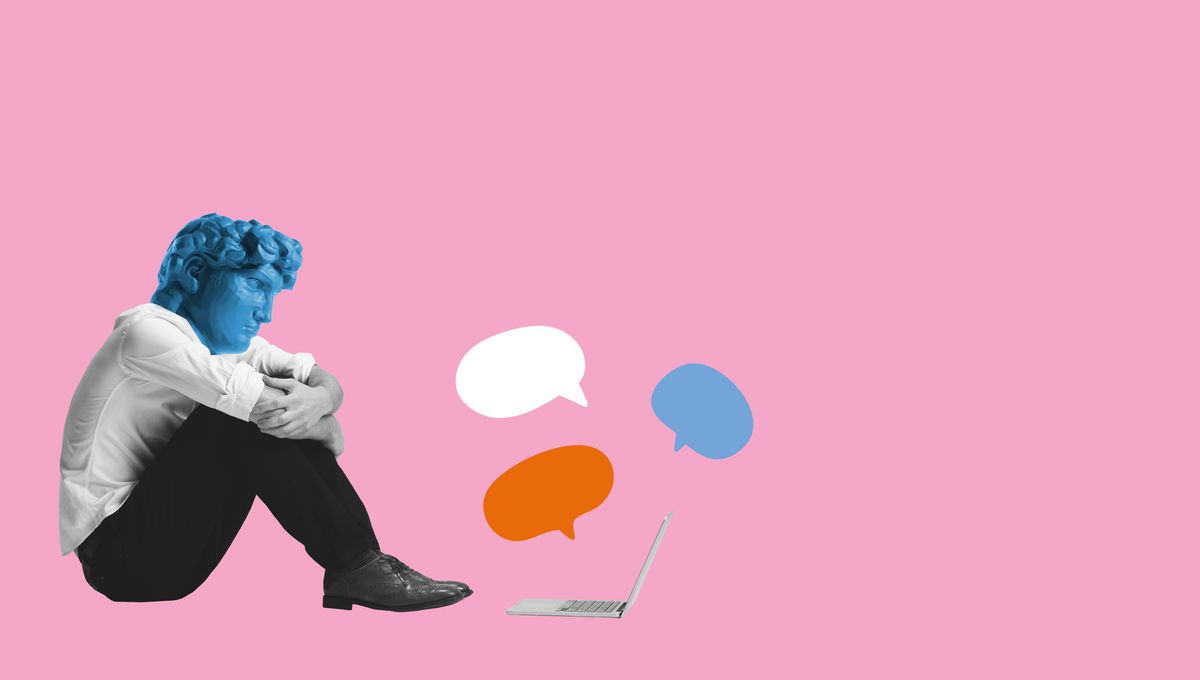
Next time you’re feeling a bit peaky, better dust off your grandma’s old medical encyclopedias rather than opt for the high-tech solution – it turns out asking ChatGPT might just make things worse.
The evidence? A new case study out of Washington state, in which a seemingly healthy man ended up poisoning himself to the point of mental and psychological sickness – all at the behest of the popular GenAI program.
“A 60-year-old man with no past psychiatric or medical history presented to the emergency department expressing concern that his neighbor was poisoning him,” the paper reports. While his physical exam revealed nothing suspicious, he was notably thirsty – but, his team write, “paranoid about water he was offered.”
The longer this man stayed in the hospital, the more obvious his condition became. “In the first 24 hours of admission, he expressed increasing paranoia and auditory and visual hallucinations,” the study says, until eventually, “after attempting to escape, [this] resulted in an involuntary psychiatric hold for grave disability.”
But while extreme dehydration can indeed lead to delirium and hallucinations, it seems the source of this patient’s problems ran deeper. After treatment with IV fluids and electrolytes, the doctors were able to unravel far more than just paranoia over the hospital’s tap water: “The patient described an extremely restrictive vegetarian diet,” they report, “and was found to have multiple micronutrient deficiencies, including vitamin C, B12, and folate deficiencies.”
Further discussion also revealed far more symptoms than just the thirst and paranoia he originally presented with. He had also been experiencing weirdly bad skin lately, he said, with new acne outbreaks and cherry angiomas appearing on his face. He’d been sleeping badly, suffering from both fatigue and insomnia, which sounds like a special kind of ironic torture. He even reported ataxia – meaning he’d been losing balance, or having trouble speaking or swallowing.
And the cause? Most likely, a recent health kick in which he tried to cut down on table salt.
“He […] shared that, after reading about the negative effects that sodium chloride, or table salt, has on one’s health, he […] decided to conduct a personal experiment to eliminate chloride from his diet,” the case study reports. A noble goal, you might think – but read it again. He wanted to eliminate not sodium chloride, but chloride alone – and that’s where the problems came in.
“For 3 months, he had replaced sodium chloride with sodium bromide,” the doctors explain, “obtained from the internet after consultation with ChatGPT, in which he had read that chloride can be swapped with bromide[.]”
There’s just one problem with that advice: it’s terrible. At least, for nutrition purposes: bromides can be swapped out for chlorides for things like swimming pool sanitization or flame retardants – but when it comes to food, the two are definitely not interchangeable.
“Chloride is a mineral needed for many bodily functions,” explains the European Food Information Council. “Chloride is one of the major minerals, which our bodies need in relatively larger amounts to keep healthy. We can find chloride naturally in a variety of foods.”
Bromide, meanwhile, is poisonous. Ingesting too much of it, which used to be a lot more common until it was literally outlawed for use in over-the-counter medication in 1975, can cause nausea and vomiting, anorexia, skin problems, and a wide range of psychiatric conditions – and in fact it used to be responsible for about one in 12 psychiatric admissions in the early 20th century.
So when we tell you that the patient’s bromide level was found to be 1700 mg/L – or to put it another way, about 233 times as high as the upper limit for healthy individuals – you should hopefully understand why it was causing him some mental problems.
The good news is, after about three weeks off the homebrewed poison-salt, his symptoms improved. So potentially more concerning than the whole incident itself is how it occurred: “This […] highlights how the use of artificial intelligence (AI) can potentially contribute to the development of preventable adverse health outcomes,” the doctors write.
“Based on the timeline of this case, it appears that the patient either consulted ChatGPT 3.5 or 4.0 when considering how he might remove chloride from this diet,” they report. And while they don’t and can’t know exactly how that “conversation” went down, “when we asked ChatGPT 3.5 what chloride can be replaced with, we also produced a response that included bromide,” they confirm.
“Though the reply stated that context matters, it did not provide a specific health warning,” the paper cautions, “nor did it inquire about why we wanted to know, as we presume a medical professional would do.”
So, the moral of the story? Don’t rely on ChatGPT – or its many sibling apps – for medical advice.
And please, don’t eat bromides.
The case study is published in the Annals of Internal Medicine: Clinical Cases.
Source Link: ChatGPT Poisoned A Guy Into Psychosis, Case Study Shows